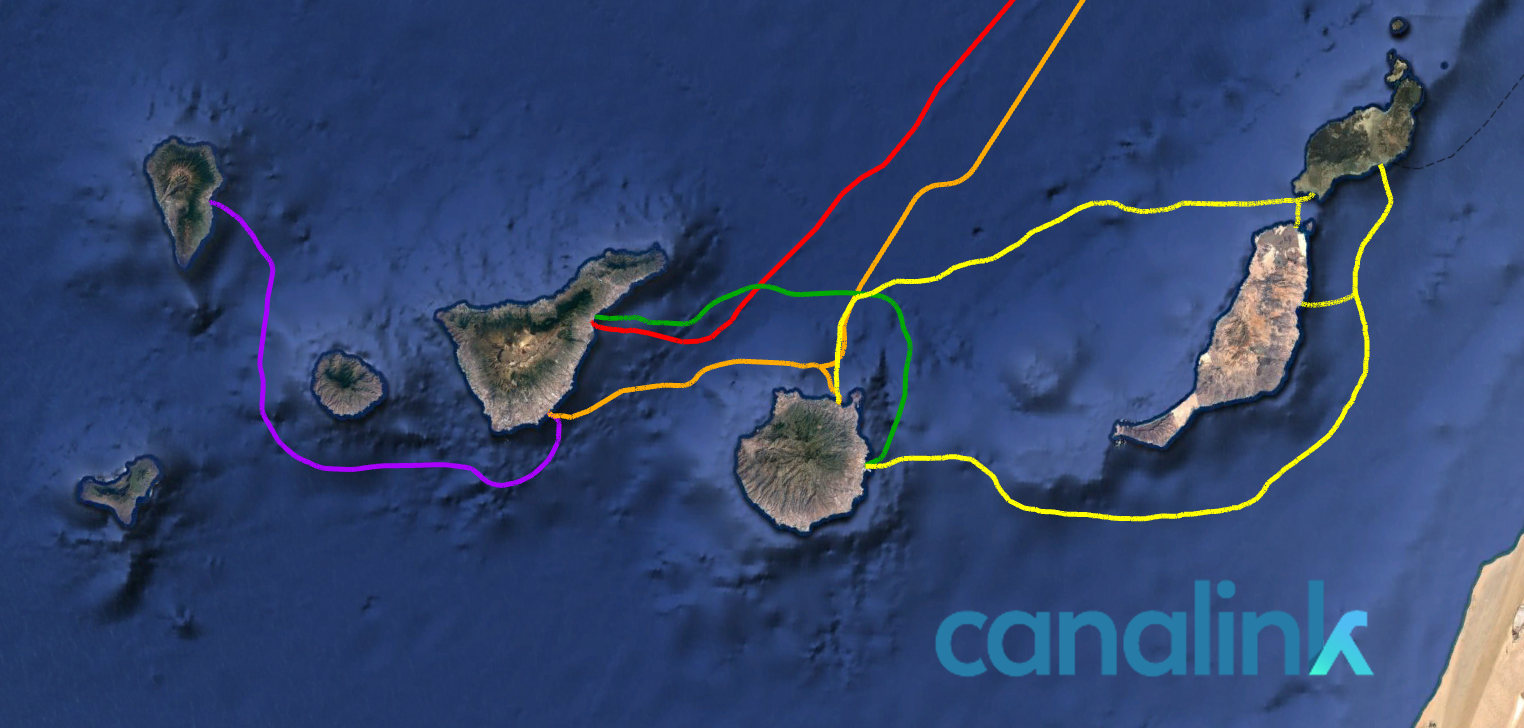Canalink, a company of the ITER group, has been granted with European funds amounting to 23.4 million euros for the deployment of a system of submarine fiber optic cables between Gran Canaria, Fuerteventura and Lanzarote, in addition to the development of a study for new cables in the archipelago.
Canalink, a company of the ITER group, has been granted with European funds amounting to 23.4 million euros for the deployment of a new system of submarine fiber optic cables between Gran Canaria, Fuerteventura and Lanzarote, , in addition to the development of a study for new cables in the archipelago. Of the total projects awarded this Monday by the European Union, Canalink will carry out the largest project, concentrating 23.4 of the 39 million euros allocated.
This is a historic project for the Canary Islands in the field of telecommunications, which will allow the islands to be better connected and have the latest telecommunications capabilities.
The two new cables that will connect Gran Canaria, Fuerteventura and Lanzarote, and their terrestrial routes, will complement the current network that CanaLink already has, which will also be reinforced with the new Gran Canaria – Lisbon cable announced last year.
About 34 million euros will be invested in this project and, in order to cover this investment, CanaLink requested access to the “Connecting Europe Facility (CEF)” funds of the European Union. Following the analysis of the proposal, the Commission determined the suitability of the project and has granted CanaLink EUR 23.4 million for the study and implementation of the project. This financing mechanism has granted financing to other projects in Spain and the Canary Islands, being this one of the Cabildo de Tenerife, the largest in the chapter of digital infrastructures.
After having signed the grant with the European Commission last Monday, the bidding and contracting processes will begin. The execution period of the project is 46 months, with Canalink having a deadline to start up the service before the end of 2026.
This project also means strengthening a company like Canalink, which already provides services to companies such as Vodafone and Orange, African companies such as Maroc Telecom, the most important in Morocco and operators in Mauritania, where Canalink handles around 70% of Mauritania’s submarine cable traffic. In this regard, Canalink will introduce a last generation submarine cable with an estimated useful life of three decades.
Since 2010 Canalink operates a network of submarine fiber optic cables that connects Tenerife with the mainland and with the islands of Gran Canaria and La Palma, aiming to promote competition in the telecommunications sector and lowering the cost of these services to the final consumer. European funds will now allow the export of this experience and infrastructure to connect the islands of Gran Canaria, Lanzarote and Fuerteventura, thus weaving a network that already incorporates five islands of the archipelago, Africa and the European continent.

